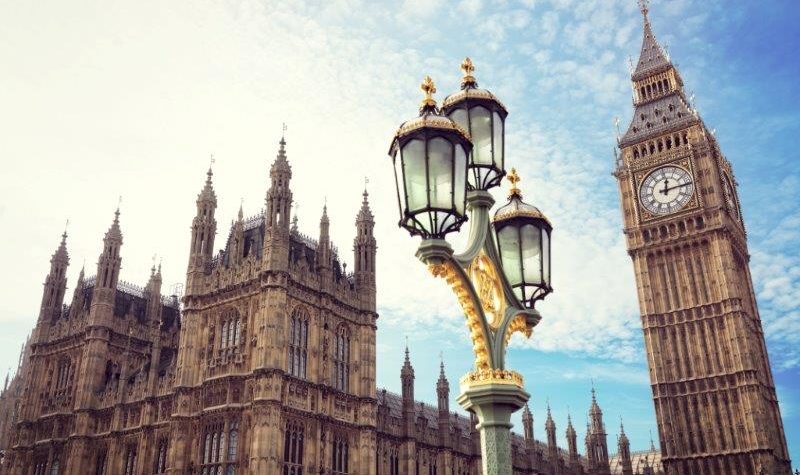Lord Andrew Adonis and three of Britain’s leading business organisations today pressed for urgent progress on key transport, energy, digital and water infrastructure decisions in the Government’s in-tray.
In a post-election statement today, the chairman of the independent National Infrastructure Commission called on the Government to ensure that Brexit and a hung parliament do not delay or defer infrastructure projects which are critical to the UK’s competitiveness and productivity.
Lord Adonis said:
“Britain’s historic weakness has been to underinvest in infrastructure, and to adopt a stop:go approach even where decisions are taken in principle. Nothing symbolises this more than the long-running saga of Heathrow airport. A third runway was agreed in principle 14 years ago but there has still not been a firm decision to proceed.
“There’s no point saying Britain is open to the world if you can’t get to and from the rest of the world because Heathrow is full.”
Lord Adonis published a list of the “top 12” immediate priorities on which Ministers must make rapid progress in the next year. These include HS2, new electricity generating capacity, digital and broadband roll-out, Crossrail 2, HS3 (the “Crossrail for the North”), and the new Thames crossing to relieve the M25 Dartford crossing.
His statement has the backing of the Confederation of British Industry, the British Chambers of Commerce and the Federation of Small Businesses.
In his speech at the Institution of Civil Engineers, Lord Adonis said:
“Brexit and the hung parliament must not lead to dither and delay on the key infrastructure challenges facing the country. We need to press on with decisions on Heathrow, HS2 to the North of England, new electricity generating capacity, and radical improvements to digital communications, to underpin jobs and economic growth.
“Rapid progress in the next year on these top 12 major projects and priorities is an acid test of the Government’s commitment to the ‘jobs first Brexit’ which the Chancellor, Philip Hammond, argued for last week.
“All of these have been agreed in principle, but require decisive action to get them moving in the new Parliament. They ought to be at the top of ministers’ in-trays, and they ought not to linger there a day more than necessary.”
Director-General of the British Chambers of Commerce Dr Adam Marshall said:
“Infrastructure projects, both large and small, give real confidence to business communities across the UK. They ‘crowd in’ additional business investment, generate skilled jobs, and support stronger two-way trade with customers and suppliers all across the world. The best possible Brexit deal won’t be worth the paper it is written on if we don’t have the right infrastructure to support business growth here at home.
“Successive governments have said a lot on infrastructure, but delivered comparatively little. At a time of transition and change, our physical and digital connectivity, and our energy security, are more important than ever before. Businesses want politicians of all colours focusing their energies on delivering transformative infrastructure projects – and business in turn will deliver investment, jobs and prosperity.”
Deputy Director-General of the Confederation of British Industry Josh Hardie said:
“Right now, we have a truly golden opportunity to transform the backbone of the United Kingdom – our infrastructure – making it the envy of the world and of our international competitors.
“But this once in a generation moment to fix a corner stone of our economy can only be a success if words are turned into action, if pens are put down and diggers are started up. From Heathrow to HS2, we can build our way to a new era of growth, productivity and shared prosperity, so it’s absolutely vital the Government doesn’t put the brakes on.
“Pushing ahead with improving our infrastructure is a tremendous opportunity to bridge north and south, to strengthen the arteries that connect communities, to build the homes people so badly need, and improve their often arduous journeys to work. If we get this right, we are on the verge of a new dawn for British infrastructure.”
National Chairman of the Federation of Small Businesses Mike Cherry said:
“It is vital that the government doesn’t get distracted from delivering on infrastructure projects both large and small. Day to day, small businesses rely particularly on a well-maintained local road network. For flagship projects, procurement should be opened up to small businesses. Taxpayers will want to know their money is backing the UK’s hardworking entrepreneurs. Improving broadband, delivering the Northern Powerhouse and investment in flood defences are all non-negotiable in this Parliament.”
Notes to editors
- The National Infrastructure Commission was established in 2015 to offer independent advice to Government on addressing the UK’s long-term infrastructure needs.
- The membership of the National Infrastructure Commission is:
- Chair: Lord Adonis
- Deputy Chair: Sir John Armitt CBE
- Commissioners: Dame Kate Barker DBE; Professor Tim Besley CBE; Professor David Fisk CB; Andy Green; Dr Demis Hassabis; Professor Sadie Morgan; Julia Prescot, and Bridget Rosewell OBE
The ‘top 12’ infrastructure priorities which Ministers must progress over the next year are:
1. Heathrow 3rd runway.
The Government should complete all preparatory work needed for a Parliamentary decision to be taken on a third runway for Heathrow airport, and progress other aviation policy decisions to boost air traffic capacity, particularly in the south-east of England. This requires:
- A House of Commons vote on any finalised National Policy Statement on airports capacity in the south-east of England no later than May 2018;
- A government response to the consultation on UK airspace published no later than October 2017;
- A timetable for agreeing an updated national aviation strategy published no later than September 2017.
2. High Speed 2
The Government should introduce the hybrid Bill for phase 2a (Birmingham to Crewe) of High Speed 2 and publish the finalised route for Phase 2b (Crewe to Manchester and Birmingham to Leeds), including connections with High Speed 3, and let the major work contracts for the project, by the end of July 2017.
3. High Speed 3 (linking the major northern cities from Liverpool to Newcastle and Hull)
The Government should publish by the end of 2017 a single integrated plan for the first phase of High Speed 3, incorporating proposals for electrifying and upgrading the trans-Pennine (Manchester to Leeds) rail route, plans for the northern sections of HS2, and plans for the redevelopment of Manchester Piccadilly station, as set out in the NIC’s High Speed North report.
4. Crossrail 2 (linking north-east, central and south-west London)
The Government should by the end of 2017 publish a plan, agreed with the Mayor of London, for the funding and phased construction of Crossrail 2, and for securing the necessary parliamentary consent, taking account of the recommendations in the NIC’s Transport for a World City report.
5. Eastern crossings of the River Thames
The Government should:
- take a decision on planning permission for the Silvertown Tunnel by the end of October 2017;
- announce its financing strategy for the new Lower Thames Crossing (to relieve the congested M25 Dartford Crossing), and begin the Environmental Impact Assessment process, no later than September 2017, paving the way for consultation on the detailed route in 2018 and the submission of the development consent application in 2019;
- agree a policy with the Mayor of London for the next road crossing of the Thames in East London by the end of 2017, to enable substantial new housing development.
6. Flexible power systems
The Government should publish its plan for smart energy systems, as set out in its response to the NIC’s Smart Power report, including the actions it will take to enable greater deployment of electricity storage, interconnectors and demand flexibility, no later than September 2017.
7. Renewable energy
The Government should publish its firm forward plans for supporting renewable energy, at least to 2025, including the use of the remaining funds from the £730m agreed in the last Parliament, by October 2017, and specific longer-term goals in the Autumn Budget.
8. Decarbonisation of energy
The Government should publish its strategy for the decarbonisation of energy, including its emissions reduction plan, no later than October 2017, and set out its trajectory for the future level of the “carbon price floor” in the Autumn Budget.
9. Hinkley Point C
The Government should by the end of the year publish a strategy and timetable for replacing the services provided by the UK’s membership of Euratom to support the timely delivery of the new Hinkley Point C nuclear power station and any future nuclear projects.
10. Broadband and mobile
The Government should, by the end of 2017, publish its final broadband Universal Service Obligation decision and set out minimum acceptable standards for mobile coverage, based on metrics which genuinely reflect where people live, work and travel. These should be followed within six months by a credible delivery plan, setting out the concrete steps that the Government will take to ensure they are met.
11. 5G mobile
The Government and Ofcom should take the following steps by the end of 2017 to implement the recommendations from the NIC’s Connected Future report and prepare for the widespread deployment of 5G technology from 2020:
- Complete the auction of 5G spectrum in the in the 3.4 – 3.6 GHz range and publish a timetabled plan to complete by the end of 2019 the auctions of other key 5G spectrum bands;
- Set out a comprehensive plan to enable the rollout of 5G services, including proposals for providing access to public sector buildings, land and other assets, and the commercial models for delivering high quality mobile services directly alongside the motorway network and main railway lines.
12. Water and flood defence infrastructure
The Government should finalise the Strategic Policy Statement for Ofwat by the end of September 2017 and publish its review setting out proposals for the effective management of surface water flooding by the end of 2017.




